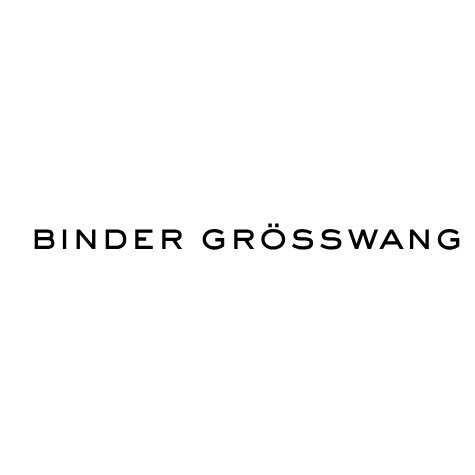Best Franchising Lawyers in Innsbruck
Share your needs with us, get contacted by law firms.
Free. Takes 2 min.
List of the best lawyers in Innsbruck, Austria
About Franchising Law in Innsbruck, Austria
Franchising in Innsbruck, Austria, is an increasingly popular business model that allows entrepreneurs to operate under an established brand and business system. Austrian laws and regulations provide a structured framework to protect both franchisees and franchisors, ensuring fair business practices. Key legislation includes the Commercial Code, the Tenancy Law, and various competition laws which govern the operational aspects of franchising.
Why You May Need a Lawyer
There are several situations where legal assistance can be crucial in the field of franchising. These may include:
- Reviewing and negotiating franchise agreements to ensure fair terms.
- Understanding and complying with local and national regulations.
- Resolving disputes between franchisors and franchisees.
- Handling intellectual property rights and trademarks.
- Advising on the financial aspects of entering a franchise agreement.
- Assisting with the sale or transfer of franchise locations.
Engaging an experienced lawyer can help avoid potential pitfalls and ensure legally sound decisions are made.
Local Laws Overview
Key aspects of local laws that are relevant to franchising in Innsbruck include:
- Commercial Code: Governs business operations, including franchising agreements and disclosures.
- Competition Laws: Ensure market fairness and prevent anti-competitive practices.
- Tenancy Law: Pertains to property leases, critical for setting up franchise locations.
- Consumer Protection Laws: Protect the rights of consumers and ensure fair marketing practices.
- Intellectual Property Laws: Protect trademarks, branding, and business methods used in franchising.
Compliance with these laws is essential for the legal and smooth operation of a franchise.
Frequently Asked Questions
1. What is franchising?
Franchising is a business model where one party (the franchisor) grants another party (the franchisee) the right to operate a business under the franchisor's brand and system in exchange for fees and royalties.
2. What should I look for in a franchise agreement?
A franchise agreement should clearly outline the rights and obligations of both parties, including terms of payments, duration, territory, training, support, and the renewal or termination conditions.
3. Are there specific laws governing franchising in Austria?
While there is no specific franchising law in Austria, franchising operations are regulated under general commercial, competition, and consumer protection laws.
4. Do I need a lawyer to start a franchise in Innsbruck?
While it's not legally required, consulting a lawyer is highly recommended to navigate the complexities of franchise agreements and local regulations.
5. How can I resolve disputes with my franchisor?
Disputes can often be resolved through mediation or arbitration as stipulated in your franchise agreement. Legal action is a last resort and usually involves the courts.
6. What are the costs involved in franchising?
Costs typically include initial franchise fees, ongoing royalties, marketing fees, and costs of setting up and operating the business. Detailed cost assessments should be reviewed with financial advisors and lawyers.
7. What support should I expect from my franchisor?
Franchisors generally offer initial training, ongoing support, marketing assistance, and operational guidance to ensure franchisees successfully run the business.
8. Can I sell my franchise?
Yes, but the sale often requires the approval of the franchisor and must comply with the terms outlined in the franchise agreement.
9. Do franchise agreements have a fixed duration?
Most franchise agreements have specific terms ranging from several years to a decade, with options for renewal subject to certain conditions.
10. What happens if I want to terminate the franchise agreement early?
Early termination can be complicated and may entail financial penalties. The specific terms for early termination should be detailed in your franchise agreement.
Additional Resources
For more information and assistance regarding franchising in Innsbruck, consider the following resources:
- Austrian Economic Chamber (WKO): Provides valuable business information and support.
- Austria Franchise Association: Offers resources for both franchisors and franchisees.
- Federal Ministry for Digital and Economic Affairs: Governs economic regulations and provides guidance on compliance.
- Local Chambers of Commerce: Offer a wealth of local business knowledge and networking opportunities.
Next Steps
If you need legal assistance in franchising, follow these steps:
- Research and Identify Needs: Determine the specific areas where you require legal assistance, whether it is contract review, compliance, dispute resolution, etc.
- Find a Specialized Lawyer: Seek out lawyers or law firms in Innsbruck with experience in franchising law. Recommendations from business associations or online reviews can be helpful.
- Schedule a Consultation: Meet with potential lawyers to discuss your needs, understand their approach, and assess their expertise.
- Review Legal Fees: Understand the fee structure and ensure it aligns with your budget. Discuss potential costs upfront to avoid surprises.
- Engage Legal Services: Once you have found a suitable lawyer, formally engage their services to tackle your franchising legal needs effectively.
Proper legal guidance can make a significant difference in the success of your franchising venture in Innsbruck, Austria.
Lawzana helps you find the best lawyers and law firms in Innsbruck through a curated and pre-screened list of qualified legal professionals. Our platform offers rankings and detailed profiles of attorneys and law firms, allowing you to compare based on practice areas, including Franchising, experience, and client feedback.
Each profile includes a description of the firm's areas of practice, client reviews, team members and partners, year of establishment, spoken languages, office locations, contact information, social media presence, and any published articles or resources. Most firms on our platform speak English and are experienced in both local and international legal matters.
Get a quote from top-rated law firms in Innsbruck, Austria — quickly, securely, and without unnecessary hassle.
Disclaimer:
The information provided on this page is for general informational purposes only and does not constitute legal advice. While we strive to ensure the accuracy and relevance of the content, legal information may change over time, and interpretations of the law can vary. You should always consult with a qualified legal professional for advice specific to your situation.
We disclaim all liability for actions taken or not taken based on the content of this page. If you believe any information is incorrect or outdated, please contact us, and we will review and update it where appropriate.











